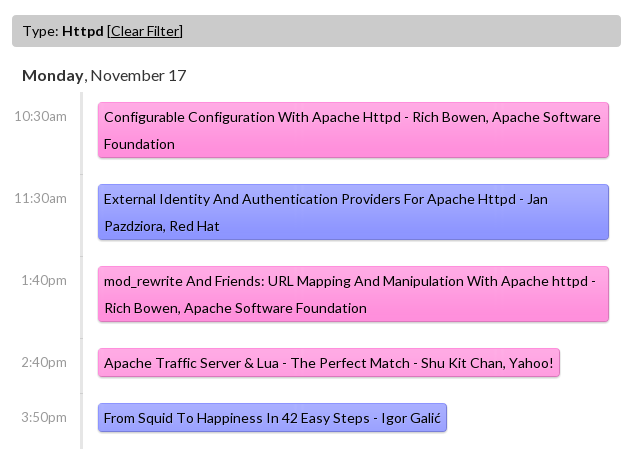I think, this morning, my son finally began to understand the awesomeness that is Open Source. He asked, as he has done a number of times before, what it would cost to set up a website, and didn’t seem to believe my answer, which was, of course, $0.
So, after he wolfed down his breakfast, we sat down and installed WordPress, got it configured shiny, and he kept asking, how much does this cost? How can it be this good if it doesn’t cost anything? This looks really professional. Are you sure this is free?
I told him, as I’ve probably mentioned before, that the Apache Web Server runs a huge percentage of the websites he looks at, and that I had a part in creating that. And that I also had a *very* small part in creating WordPress, too. (I believe I have two patches in there somewhere, although I don’t remember what they were.)
At one point, while we were tweaking the theme, he said, in a very roundabout “I’m sure this is way too hard” kind of way, that some day, in the distant future, he’d like to have forums on the site, where people could discuss things. I installed BBPress in under a minute, and said, you mean kinda like this?
He also asked whether it was possible to have his own hostname, and so I taught him a little bit about how DNS works, and showed him how to register a name, and then how to configure DNS to point a name at an IP address.
So, about 30 minutes later, he’s got his own website, where he’ll be posting his youtube videos, animations, and random comments about the world. No, I don’t really know what the name means, so ask him, not me.


